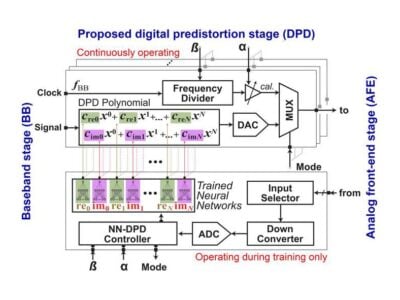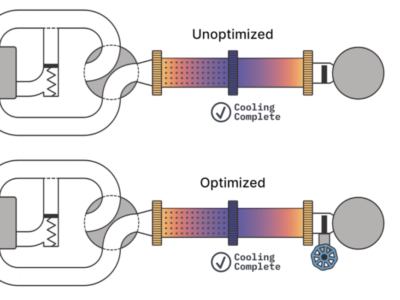
Viavi launches 6G university research programme in UK and US
Test equipment maker Viavi Solutions has launched an academic programme to support 6G research at universities in the UK and US, including the University of Surrey.
The 6G Forward programme is designed to provide vital expertise, technology, and funding to promising avenues of research. As well as Surrey, the company is supporting Northeastern University and the University of Texas at Austin.
Test equipment maker NI is supporting New York University, while Keysight Technology supports the 6G Flagship Program, led by the University of Oulu in Finland.
At the University of Surrey in the UK, Viavi is a founding member of the 5G/6G Innovation Centre led by Prof Rahim Tafazolli. The Centre is researching 5G, 5G+ and 6G infrastructure from antennas and signal processing and AI for wireless communications to intelligent and high-performance networking and service delivery, RAN technology and management and mobile network security. It is also looking at new physical layer technologies, satellite communications and terahertz (THz) components.
Related articles
- Two UK universities launch 6G centre
- UK looks to £250m to secure 5G and 6G telecoms supply chain
- NI teams for 6G terahertz research
At Northeastern University, Viavi is supporting the Institute for Wireless Internet of Things and the Open6G cooperative research centre led by Professor Tommaso Melodia. The group is exploring large-scale RF propagation channel modeling based on AI and ML technologies to develop a city-scale digital twin of a 6G network. The team is also developing a RAN Intelligent Controller (RIC)-enabled Massive MIMO beamforming optimization testbed using the Colosseum 256-port RF channel emulator and the Viavi E500 UE Emulator.
“At the Institute for the Wireless Internet of Things, we envision a future in which people and their environment are connected by a continuum of AI-powered devices and networks,” said Professor Melodia. “6G research initiatives require collaboration between academia and industry, and the technology, expertise and funding provided by Viavi are critical to our contributions to making wireless communications exponentially faster, smarter, more energy efficient, and more secure.”
At the University of Texas at Austin, Viavi supports 6G@UT, led by Professor Jeff Andrews, within the Wireless Networking and Communications Group (WNCG). The key topic of the joint research is applying end-to-end machine learning, specifically deep reinforcement learning (DRL), using adversarial conditions to re-train more robust cellular traffic forecasters.
“6G@UT is imagining the future of wireless connectivity at the intersection of immersive sensing and machine learning,” said Professor Andrews. “Viavi’s unique perspective on enabling the entire network lifecycle from R&D to deployment provides academic researchers like us insights into problems affecting real-world network deployments, and we welcome the collaboration with the VIAVI experts as we embark on this journey towards 6G.”
“Academic institutions play a vital role in exploring the potential of 6G,” said Dr. Ian Wong, CTO Office, Viavi. “We believe it is important to get involved now and to allow disruptive and productive areas of research to see their ideas come to fruition ahead of formal standards definitions. We have had fascinating and beneficial exchanges with our academic partners and we hope to expand the scale of the program in the future.”
Viavi is also a founding member of the Next G Alliance, a US industry alliance for 6G research and development, manufacturing, standardization and market readiness.
Related 6G articles
- Major 6G project starts in Europe
- Nokia to lead major German 6G project
- Who is winning in 6G?
- Project to develop 6G transceiver
- LiFi prof aims at terahertz signalling for 6G
 If you enjoyed this article, you will like the following ones: don't miss them by subscribing to :
eeNews on Google News
If you enjoyed this article, you will like the following ones: don't miss them by subscribing to :
eeNews on Google News



